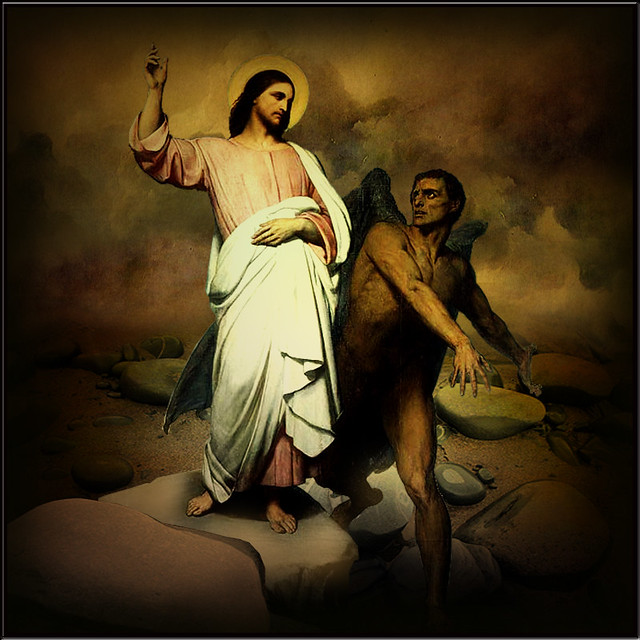THE SEED
“Let no man say when he is tempted, I am tempted of God: for God cannot be tempted with evil, neither tempteth he any man: but every man is tempted, when he is drawn away of his own lust, and enticed.” — James 1:13–14 (KJV)
It is often our instinct to shift blame when we face unpleasant consequences, but blaming God for the outcome of our poor choices reveals a lack of spiritual maturity. God, in His love, has given us free will, but with that freedom comes the responsibility of accountability. In the Garden of Eden, when Adam sinned, he blamed both Eve and God: “The woman whom Thou gavest to be with me, she gave me of the tree, and I did eat” (Genesis 3:12). But God held each person accountable; Adam, Eve, and even the serpent. This shows that God does not accept excuses; He desires truth in our inward parts. Scripture reminds us in Galatians 6:7, “Be not deceived; God is not mocked: for whatsoever a man soweth, that shall he also reap.” When we make wrong decisions, we reap the consequences; not as punishment from God, but as a result of the choices we’ve made. However, God’s grace still calls to us. He does not abandon us in our failure. Instead, He invites us to repentance and restoration. If we openly admit our sins, God can be trusted to forgive us and will make us clean of everything wrong in His eyes. Rather than pointing fingers, it is wise to humble ourselves, admit our wrongs, and trust God’s mercy to help us move forward in righteousness.
BIBLE READING: Genesis 3:8–13
PRAYER: Lord, help me to be truthful to myself to always take full responsibility for my actions and not shift blame to others or You. Help me to walk in honesty, humility, and repentance. Thank You for Your grace that restores and renews. Amen
GBA OJÚSE RE, MASE DÁ OLÓRUN LÉBI IRUGBIN NAA
“Kí ẹnikẹ́ni má ṣe sọ nígbà tí a bá dán an wò pé, ‘Ọlọ́run ni ó dán mi wò: nítorí a kò lè fi ibi dán Ọlọ́run wò, bẹ́ẹ̀ ni òun kì í dán ẹnikẹ́ni wò;” — Jákọ́bù 1:13-14 .
Ó sábà máa ń jẹ́ ìdàníyàn wa láti yí ìdálẹ́bi padà nígbà tí a bá dojú kọ àwọn àbájáde búburú, ṣùgbọ́n dídá Ọlọ́run lẹ́bi fún àbájáde yíyàn tí kò dára wa ń fi àìtó dàgbà nípa tẹ̀mí hàn. Ọlọrun, ninu ifẹ rẹ, ti fun wa ni ominira ifẹ, ṣugbọn pẹlu ominira yẹn ni ojuse ti jiyin. Nínú ọgbà Édẹ́nì, nígbà tí Ádámù dẹ́ṣẹ̀, ó dá Éfà àti Ọlọ́run lẹ́bi pé: “Obìnrin tí ìwọ fi fún mi láti wà pẹ̀lú mi, òun ni ó fi nínú èso igi náà fún mi, èmi sì jẹ” (Jẹ́nẹ́sísì 3:12). Ṣugbọn Ọlọrun ṣe idajọ olukuluku; Adamu, Efa, ati paapaa ejo. Èyí fi hàn pé Ọlọ́run kò gba àwáwí; O nfẹ otitọ ni awọn ẹya inu wa. Ìwé Mímọ́ rán wa létí nínú Gálátíà 6:7 pé: “Ẹ má ṣe tàn yín jẹ; Ọlọ́run kì í ṣe ẹlẹ́gàn: nítorí ohunkóhun tí ènìyàn bá fúnrúgbìn, òun ni yóò sì ká pẹ̀lú.” Tá a bá ṣe àwọn ìpinnu tí kò tọ́, a máa ń kó àbájáde rẹ̀; kii ṣe gẹgẹbi ijiya lati ọdọ Ọlọrun, ṣugbọn bi abajade ti awọn yiyan ti a ti ṣe. Sibẹsibẹ, oore-ọfẹ Ọlọrun ṣi n pe wa. Kò kọ̀ wá sílẹ̀ nínú ìkùnà wa. Kàkà bẹ́ẹ̀, ó pè wá sí ìrònúpìwàdà àti ìmúpadàbọ̀sípò. Bí a bá jẹ́wọ́ ẹ̀ṣẹ̀ wa ní gbangba, Ọlọ́run lè ní ìgbẹ́kẹ̀lé pé yóò dárí jì wá yóò sì mú wa mọ́ kúrò nínú ohun gbogbo tí kò tọ́ ní ojú Rẹ̀. Dípò tí a ó fi máa tọ́ka, ó bọ́gbọ́n mu láti rẹ ara wa sílẹ̀, gba àwọn àṣìṣe wa, kí a sì gbẹ́kẹ̀ lé àánú Ọlọ́run láti ràn wá lọ́wọ́ láti tẹ̀ síwájú nínú òdodo.
BIBELI KIKA: Jẹ́nẹ́sísì 3:8–13
ADURA: Oluwa, ṣe iranlọwọ fun mi lati jẹ olootọ si ara mi lati gba ojuse ni kikun nigbagbogbo fun awọn ojuṣe mi ati ki o ma yi ẹbi si awọn miiran tabi Iwọ. Ran mi lọwọ lati rin ni otitọ, irẹlẹ, ati ironupiwada. O ṣeun fun oore-ọfẹ Rẹ ti o mu pada ati sọtun. Amin
